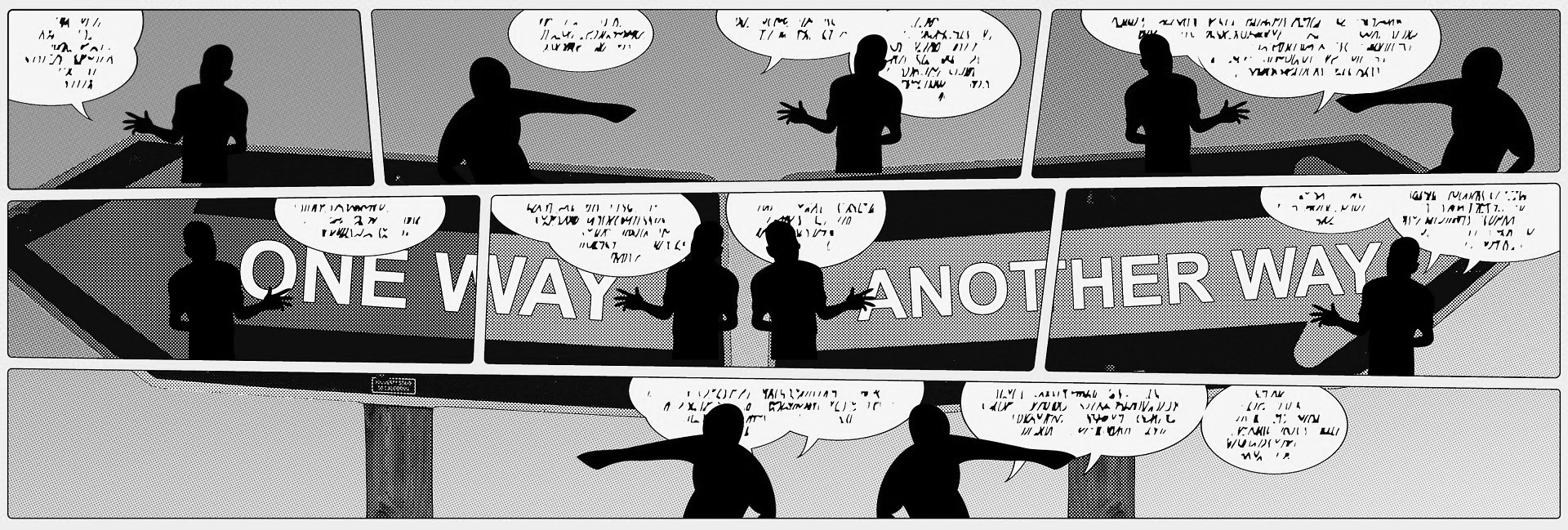Voluntary
Participation in a mediation process is made on an entirely voluntary basis
As a participant, you can also choose to withdraw from the process at any time, without the need to justify your decision
A dialogue process assisted by a neutral and impartial third party (mediator) whose aim it is to help two or more people experiencing a conflict to constructively dialogue with each other so that they may themselves define a mutually acceptable agreement that resolves their own dispute
Mediation is a process that is:
*The mediation service offered EXCLUDES divorce and child custody cases
*The mediation service offered EXCLUDES disputes that are criminal/penal in nature

Participation in a mediation process is made on an entirely voluntary basis
As a participant, you can also choose to withdraw from the process at any time, without the need to justify your decision

What is said/written/done within a mediation process is confidential and cannot be used outside of the boundaries of the process
For this purpose, a participation agreement (protocol of engagement) is signed by all parties prior to the start of the mediation dialogue

You retain the decisional power to reach or not a mutually acceptable agreement
The mediator is neutral and impartial. He/She does not make decisions for the participating parties and does not offer any legal advice. Contrary to a judge or abitrator, the mediator does not render a judgment / verdict / decision

The mediator takes care of the process and discussion rules so as to allow for a constructive dialogue to take place
You can also choose to be accompanied by someone you trust if you so wish


Depending on the given circumstances, a few effective days of constructive dialogue could be sufficient for the participating parties to reach a mutually acceptable agreement

Possibility of resolving the dispute in a manner that best suits you, by yourselves defining the mutually acceptable solutions for your given dispute

If an agreement is reached, you will have together established the mutually acceptable agreement, and hence you will be more inclined to properly implement it

Mediation fosters maintaining relationships / respectful exchanges before/during/after the process

In order to create the conditions for a constructive dialogue, the course of the process is adjusted according to the particular circumstances (place, schedule, rhythm of the exchanges (frequency, duration), etc.)

Proportionality between the costs incurred / time invested in the process, and the nature of the dispute. The mediator's fees and charges are shared between the parties (or assumed by their employer in the case of a workplace conflict)

Information exchanged during the process is confidential. This, in order to create the conditions for an honest and constructive dialogue

If an agreement is reached, the terms of settlement will be listed in a mediation summary

Civil justice in Quebec is in renewal in order to "provide, in the public interest, means to prevent and resolve disputes and avoid litigation through appropriate, efficient and fair-minded processes that encourage the persons involved to play an active role" Code of civil procedure of Quebec, (preliminary provision) .
Hence, since January 2016, the Code of civil procedure of Quebec, (article 1) establishes that " parties must consider private prevention and resolution processes before referring their dispute to the courts ". Mediation is one such process.
You mutually have the capacity to choose to resolve your dispute in a constructive and mutually satisfactory manner.





*Note: the mediation process may or may not result in an agreement


Imagine for a second that you are in a conflict with someone else.
• How much time do you spend in a given week thinking about the conflict?
• What is the impact of these thoughts on your emotions, on your mood, and hence on your human relationships with the people in your life?
• What are the chances that these thoughts will magically disappear all by themselves?
Let's suppose for a second that you find yourself in front of the person you are in conflict with.
• What are the chances that you will feel listened to?
• What are the chances that the other person will try to convince you that they are right and that you are wrong?
• And what are the chances that you will adopt exactly the same behavior towards that person?
Being in a conflict that becomes destructive is not enjoyable. When we are involved in a conflict, we all want the same thing: to actually feel heard / understood.
And yet, continuing to fuel a conflict, either by avoiding facing it, or by pouring gasoline on the flames, is also really easy to do. In order to wage war with someone, it is not necessary to enter into a dialogue with them. To make peace, it is.
Taking a break in the relationship dynamic to stop the conflict escalation, to openly listen to each other, to attempt to find a mutually acceptable solution... that, takes openness and whole lot of courage.
And sometimes, it will also require a neutral and impartial third party that will be in charge of creating the safe space which will allow for a constructive dialogue.
The decision to participate in a mediation process or not, to reach an agreement or not, and to continue to interact with each other or not, will always be yours. Yet, at the very least, you will have had the opportunity to hit the pause button so as to constructively dialogue before making your decisions.
And you, what is your decision?